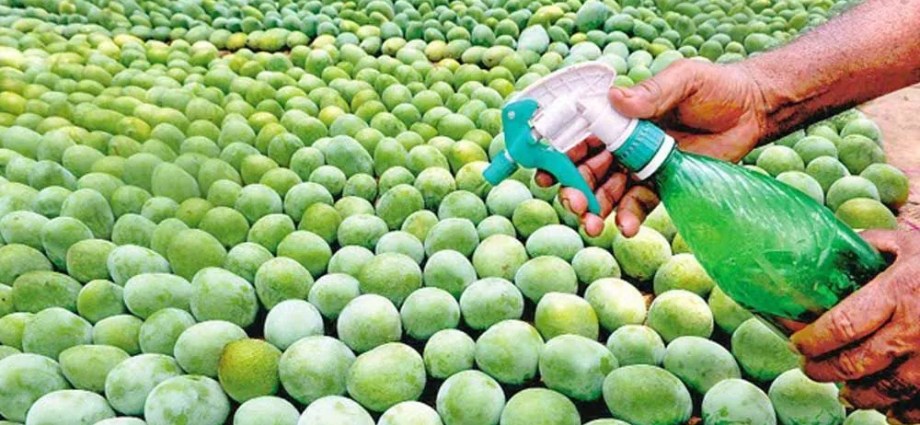Senate Summons NAFDAC Over Use of Harmful Chemicals in Fruit Ripening
The Nigerian Senate has summoned the National Agency for Food and Drug Administration and Control (NAFDAC) to address growing concerns about the use of dangerous chemicals in fruit ripening across the country.
Motion Raises Alarm Over Food Safety
The summons followed the adoption of a motion titled “Urgent Need to Investigate and Halt the Continuous Unwholesome Practice of Chemical Ripening of Fruits in Nigeria,” sponsored by Senator Anthony Ani during Wednesday’s plenary session in Abuja.
Health Risks of Artificial Ripening
Senator Ani expressed grave concerns about the increasing practice of chemically-induced ripening, describing it as a “dangerous deviation from natural fruit ripening processes.” He emphasized that naturally ripened fruits offer superior sweetness, texture, and nutritional value compared to those artificially ripened with harmful chemicals.
While acknowledging that some ripening agents like ethylene and methyl jasmonate may be relatively safe, the lawmaker highlighted the widespread use of more dangerous substances including:
- Calcium carbide
- Ethephon
- Ethylene glyco-chemicals
These chemicals often contain toxic residues of heavy metals like lead and arsenic, which can cause severe health complications including cancer, kidney damage, liver failure, and neurological disorders.
Senate Directs Regulatory Action
The upper legislative chamber issued several directives in response to the growing food safety concern:
Immediate Actions Ordered:
- NAFDAC management to appear before Senate Committees on Health and Agriculture
- Ministry of Agriculture and FCCPC to investigate and take urgent action
- Public awareness campaign by NAFDAC and NOA on health risks
Senator Ani criticized regulatory agencies for failing to keep pace with international standards, noting that many countries have already banned these dangerous fruit ripening practices.
Related: NAFDAC launches digital tools to tackle counterfeit drugs in North-East Nigeria
Public Health Implications
The Senate’s intervention comes amid growing concerns about food safety standards in Nigeria. Experts warn that prolonged consumption of artificially ripened fruits could lead to chronic health conditions and potentially fatal consequences in severe cases.
The resolution emphasizes the need for stricter enforcement of food safety regulations and better consumer protection measures to safeguard public health.


